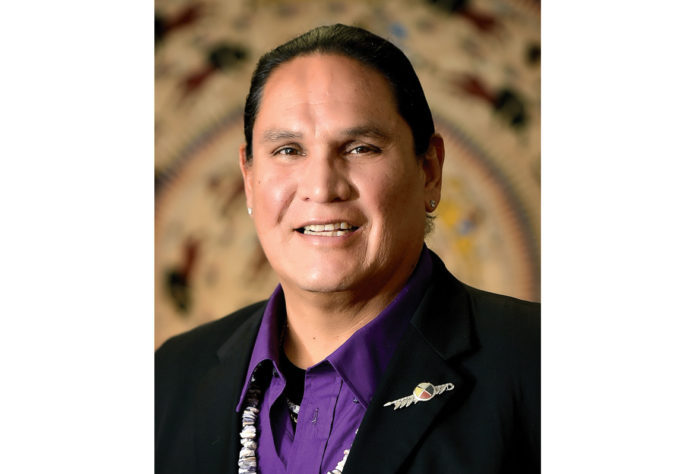by Ernest L. Stevens, Jr.
During our Annual Tradeshow and Convention, the Indian Gaming Association’s Executive Board called upon President Biden to nominate a qualified individual to serve as Chairman of the National Indian Gaming Commission (NIGC) and for the Senate to swiftly confirm that person. The need to fill this important role arose when former NIGC Chair Sequoyah Simermeyer resigned on February 24, 2024. While Simermeyer delegated some of the Chair’s authorities to Vice Chair Jeannie Hovland to manage day-to-day functions of the Commission, there remains a need for a Senate-approved NIGC Chair.
The Indian Gaming Regulatory Act (IGRA) established the NIGC, which is the only federal agency designed to regulate any form of gaming in the U.S. The Act requires the NIGC to be “composed of three full-time members,” including a Chair, nominated by the President and confirmed by the Senate, and two Associate Commissioners appointed by the Secretary of the Interior. IGRA established the NIGC as a bipartisan agency, permitting only two of the three Commissioners to be from the same political party. In addition, at least two members of the Commission must be enrolled tribal members. The NIGC’s organizational structure is composed of the Office of General Counsel which handles legal affairs, and the Office of the Chief of Staff, which manages day-to-day activities and includes the Division of Compliance, Division of Finance, Division of Public Affairs, and the Division of Technology. The Commission provides federal oversight to approximately 527 tribally owned, operated or licensed gaming establishments operating in 29 states.
While the NIGC plays an important role in regulating Indian gaming operations, the day-to-day regulation of Indian gaming operations will not skip a beat. Tribal leaders nationwide know that too much is at stake. Since the very beginning, making this the tribe’s utmost priority has been non-negotiable, and even after over 30 years, it remains unwavering.
In 2023, tribal governments generated $45 billion in gross Indian gaming revenues, creating 700,000 jobs in the process, and delivering revenue to Native communities to build schools, hospitals, housing, cultural centers, and museums, and fund a wide range of essential government services, including education, healthcare, child and elder care, police and fire protection, language revitalization, and much more. Without question, Indian gaming is the most successful economic
development tool for many Indian tribes.
Tribes realize that none of the benefits of Indian gaming would be possible without a strong regulatory system to protect revenue and preserve the integrity of our operations. For many tribes, Indian gaming is the primary source of revenue to fund the basic needs of our communities. No one has a greater interest in protecting the integrity of Indian gaming than tribal governments.
The Indian Gaming Regulatory Act of 1988 laid out a three-layered comprehensive system to regulate Indian gaming. The Act acknowledges that tribal governments would be the primary regulatory authorities over Class II Indian gaming, providing the NIGC with direct authority to monitor Class II gaming on a continuing basis. The Act leaves the bulk of the details for the regulation of Class III gaming to be determined by compact negotiations between tribes and states, with the NIGC maintaining a secondary oversight role over Class III regulation. While tribes take on the primary regulatory role, IGRA requires coordination and cooperation with the federal and state governments to make this comprehensive system work.
Over the past several decades overseeing gaming activities on Indian lands, tribal governments and tribal regulators have gained significant expertise in the field of gaming regulation. Early on, many tribal regulators came directly from federal and state gaming regulatory bodies, law enforcement, and judicial systems. Today, many tribal regulators have emerged as homegrown talents, absorbing knowledge firsthand from these esteemed experts – exactly as IGRA envisioned. They are educated, rigorously trained, and persistently collaborating to elevate themselves, fortify their capabilities, and enhance their support network.
In addition to meeting and exceeding the regulatory requirements of IGRA and the NIGC’s regulations, tribal regulators have formed associations such as the National Tribal Gaming Commissioners and Regulators, the Tribal Gaming Protection Network and many others. These organizations have taken an innovative approach to regulation by sharing vital information on individuals and threats to gaming operations, as well as best practices of what is working to better protect tribal resources.
This comprehensive system of regulation is expensive and time consuming, but tribal leaders know what is at stake and that strong regulation is the cost of a successful operation. Each year, tribal governments dedicate nearly $500 million to tribal, state, and federal regulation. This number includes: more than $350 million to fund tribal government gaming regulatory agencies; $100 million to reimburse states for state regulatory activities agreed to pursuant to tribal-state Class III gaming compacts; and $30 million to fully fund the operations and activities of the National Indian Gaming Commission. This funding employs more than 6,000 tribal government gaming regulators, approximately 570 states regulators, and funding for 140 NIGC employees.
Tribal governments know what is at stake and have committed these significant resources to maintain a strong, seamless, and comprehensive system of regulation. Much of the credit for this success goes to the tribal leaders who make the decision each year to dedicate significant resources to regulate their operations, and to the thousands of men and women who are day-to-day front-line regulators of Indian gaming.
So again, Indian Country and tribal leaders nationwide will ensure that Indian gaming operations maintain the highest standards with regard to regulation to protect the integrity of Indian gaming operations, and the security of the vital resources that Indian gaming provides to tribal communities nationwide. But we cannot risk even a small gap in this system of regulation. For that reason, the Indian Gaming Association continues to call on President Biden to nominate a well-qualified individual to serve as Chairman of NIGC and for the Senate to swiftly confirm that person.
Ernest L. Stevens, Jr. is Chairman of the Indian Gaming Association. He can be reached by calling (202) 546-7711 or visit www.indiangaming.org.













































